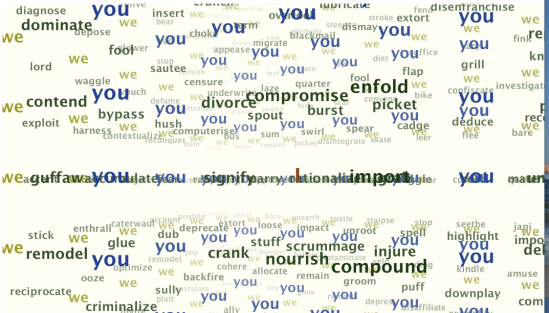
Computer-generated poem, based on my twitter feed (@medieninitiativ). Made with Poetweet.

Abstract for Bettina Soller’s talk at the symposium “Imagining Media Change” (June 13, 2013, Leibniz Universität Hannover):
How We Imagined Electronic Literature and Who Died: Looking at Fan Fiction to See What Became of the Future of Writing
Bettina Soller
Starting in the pre-Web era, the first emergence of electronic literature was accompanied by a wave of theoretical writings about literary hypertext. Theorists had visions of the escape from the book’s linearity and the far-reaching effects of hypertext on the future of reading and writing. Enthralled by the newness of the media, critics envisioned the death of the book, the author, the reader, and the editor in an effort to make sense of the changes awaiting literature, while at the same time establishing a canon of e-literature and the notion of a high culture of hypermedia practices.
Since then, the end of the golden age of hypertext literature has been announced. Literary studies degraded electronic and digital literature to one of its marginal subject matters. While the circus moved on, forms of writing that challenge established notions of text, work, author, and reader thrive online and extensively outnumber the canon of electronic literature established by first wave critics. This paper will examine fan fiction as one of the most proliferating digital and online writing phenomena. Fan fiction writing encompasses the practice of readers who become authors expanding, appropriating and transforming texts of popular culture. These fan texts are published in online archives and on personal sites in social journaling portals. Through an examination of this electronic literature phenomenon, some of the major theses of hypertext theory will be reexamined to see what became of the future of writing and who actually died.